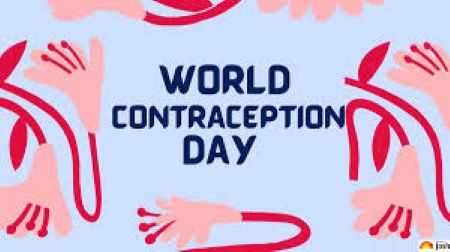In commemoration of the “World Contraception Day” (WCD) on September 26th, Nigerian health experts, including Prof. Josiah Mutihir of Jos University Teaching Hospital (JUTH), are highlighting the crucial role of contraception in family planning, including empowering individuals to take control of their reproductive health.
At a webinar organized by Development Communications Network (DevComs), with support from The Challenge Initiative (TCI, Nigeria), experts discussed the theme Breaking Barriers: Advancing Access to Family Planning in Resource-Limited Settings. They emphasized the urgent need for Nigeria to address unregulated procreation, which has contributed to the country’s socio-economic challenges.
Despite years of global advocacy, Nigeria continues to face substantial barriers in family planning access. Prof. Mutihir and other experts at the event underscored that expanding access to contraception is essential for improving health outcomes, reducing maternal mortality, and enabling young Nigerians to make informed decisions about their reproductive futures.
This year’s theme, “The Power of Options: Empowering Choice, Enhancing Health,” highlights the importance of providing diverse contraceptive choices, particularly in resource-limited settings like Nigeria, where cultural, economic, and logistical challenges hinder access to essential reproductive health services.
The power of options: Empowering individuals through choice
World Contraception Day serves as a platform to educate the public about contraception—what it is, its benefits, and how it can be accessed.
While awareness is high—with over 90% of Nigerian men and women knowledgeable about contraception—the usage rate remains alarmingly low at just 17%. Furthermore, Nigeria’s unmet need for contraception stands at 24.8%, revealing a significant gap between awareness and actual access to effective family planning methods.
Mutihir stressed that offering a range of contraceptive options empowers individuals to plan their families and futures. These options include natural family planning methods, hormonal contraceptives, intrauterine devices, and permanent solutions. However, access remains a pressing issue, especially in underserved areas of Nigeria.
Nigeria’s Contraceptive Prevalence Rate (CPR) has seen only minimal improvement, despite substantial investment by organizations and projects. Mutihir pointed to several barriers preventing widespread contraceptive use, including:
ALSO READ Stakeholders urge Lagos govt to adopt RMNCH innovations
- Insufficient funding from national, state, and local governments
- Frequent stock-outs and limited availability of contraceptive methods
- Untrained healthcare providers and biases in service provision
- Inadequate facilities and poor access to services, particularly in rural areas
Cultural, religious, and political influences further complicate efforts to promote family planning. Misconceptions, concerns over future fertility, and fear of side effects deter many young Nigerians from adopting modern contraceptives. Lovina Emole, a participant from Akwa Ibom, emphasized the significant challenge posed by inadequate government funding for reproductive health programs.
Breaking barriers: A call to action
As World Contraception Day 2024 is celebrated, Prof. Mutihir calls for a collective effort to remove barriers to contraceptive access in Nigeria, urging action in the following areas:
- Government commitment to ensure adequate funding, consistent distribution of contraceptives, and proper training of healthcare providers.
- Leadership involvement—ethnic, religious, cultural, and community leaders must advocate for family planning and educate their communities.
- Sustained advocacy—the media, professional organizations, and NGOs should continue pushing for policies that enhance contraceptive access and challenge societal norms that hinder family planning.
- Private sector engagement—involving private companies to expand access to affordable contraceptives, especially in resource-constrained settings.
Lovina Victor Ibiok, Health Promotion Officer from Akwa Ibom, called for educating religious leaders to dispel myths around family planning: “Many believers view contraceptives as immoral. By empowering leaders as influencers, they can promote informed decision-making and encourage followers to adopt family planning methods, improving health and well-being.”
Similarly, Mrs. Patricia Osazuwa, Director of Nursing Services in Edo State, emphasized the need for comprehensive reproductive health education, stating, “Informed decision-making is essential for empowering young people.”
Isaac Adamu from Plateau highlighted the importance of male involvement in reproductive health decisions, suggesting that Family Planning Champions could be instrumental in influencing informed choices.



